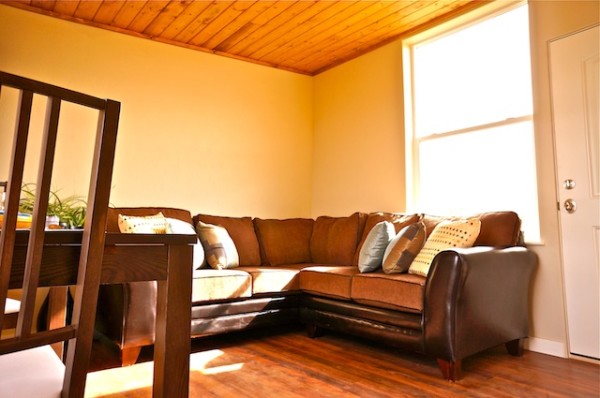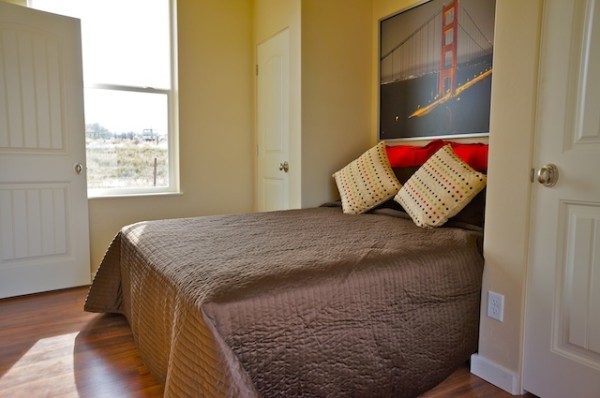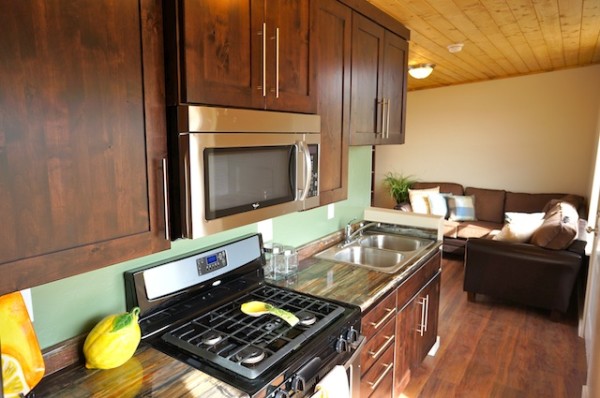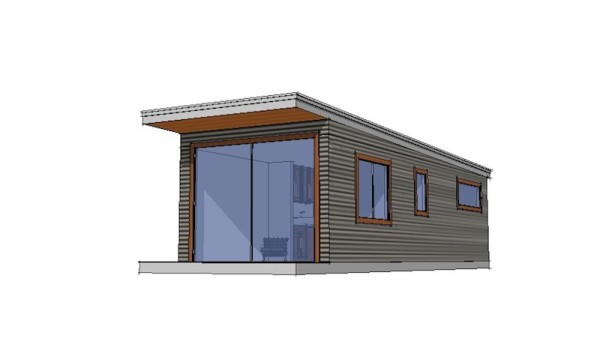ZipKit Homes, a division of Timberhawk Homes, is located in Mt.Pleasant, Utah and features several prefab plans including two that could be perfect, streamlined and efficient tiny homes built with sustainable materials and in a controlled environment. The company focuses on smaller, efficiently designed homes over big homes with extra space that rarely gets used.
Two of their smallest homes are the Skyline which is 400 square feet and the sleek M.1 which is 384 square feet. Each of the homes contains spray foam insulation, a ductless mini-slit heating and cooling system, a tankless, on-demand water heater, LED lighting, wiring for solar power, and 100 percent Energy Star Appliances. Options and various colors can be chosen for cabinets, flooring, countertops and metal roofing.
These prefab homes are built as modules in a controlled factory and are shipped 95 percent completed to the building site where they can be installed. This method generates about 80 percent less waste than standard site built homes. Final cost and payment terms are based on the type of home and options, but ZipKit Homes does offer financing. They can ship anywhere within the U.S., but it is most financial practical to ship within 1,000 miles of the factory in Utah.
Photos by ZipKit Homes
By Christina Nellemann for the [Tiny House Blog]





water homes…lake front designs
I would be very interested in seeing a floor plan of the home pictured and to know if it could accommodate a king size bed for a not-so-tiny occupant and spouse.
Go to the link in the post and you can view the floor plans on their website.
“Each of the homes contains spray foam insulation”
And how many of them will become unlivable, become toxic to the residents?
http://www.treehugger.com/green-architecture/losing-their-health-and-homes-spray-polyurthane-foam.html
I’d rather have fibreglas than foam. At least I know it won’t make me sick.
Since these are made of sustainable materials, my guess is that they use the foam made with soybeans. It’s very good for folks with household sensitivities.
I too would be very concerned about the spray foam, even the soy kind as it still uses petrochemicals that off gas. Can they do it with fiberglass or cellulose?
The website says they use “Closed cell polyurethane spray foam”.
The manufacturer should explain how spray foam insulation is sustainable or how it defines sustainable.
Even soybeans are not sustainable using current farm manufacturing methods (ie: converting oil into calories on depleted soils).
I don’t see any spray foam insulation as being sustainable.
Polyurethane has wonderful structural qualities… but an an insulation it is troublesome to many. My neighbors spray foamed their house and then had to move out for several months because of the offgassing. Non-formaldehyde fiberglass batts are pretty innocent by comparison.
$150 Sq.Ft….Park Models Direct $50 sq.ft.???? What was the plan again?
*Where’s the bathroom?
*Is there a floor plan?
Look at workmanship